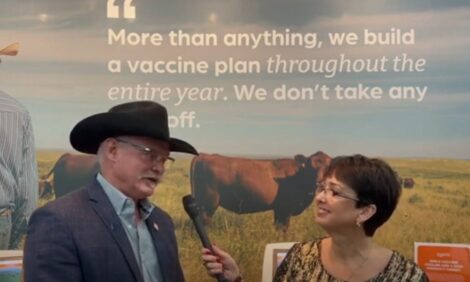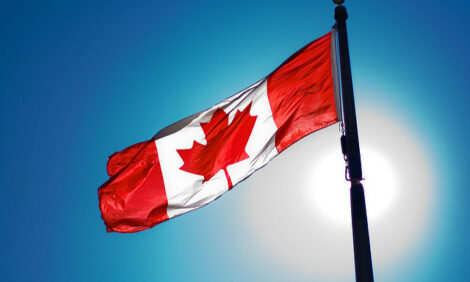



GRSB’s Petre on goals, COP27 message, nature positive
Ruaraidh Petre to speak at COP27 about ways the beef and dairy industry are reducing emissions while maintaining productionRuaraidh Petre, Executive Director of the Global Roundtable for Sustainable Beef, spoke to The Cattle Site’s Sarah Mikesell at the Global Conference on Sustainable Beef held last week in Denver, Colorado, USA.
GRSB goals
“We set those goals last year in June, and they are around climate, animal welfare and nature positive production,” said Petre. “What we're really here discussing is how to measure against those goals, how we can actually deliver against them, and then measure progress.”
Each of the high level goals are supported by sub-goals, offering more detail and guidance.
“We tried to stick to outputs rather than activities, so we're not telling people what to do, but we're telling them where we're trying to get to,” he said. “Then each of the national roundtables can implement these in ways that suit their production system and their environment.”
The 24 countries involved in 12 national round tables span a wide range of production practices and environments which can be a challenge.
“They produce cattle from the edge of the Arctic Circle right to the edge of major deserts – like here in the US or in Africa or elsewhere. So clearly, those production systems vary vastly in their nature. And it's important that they have the freedom to implement things which work in their own context,” he noted.
The various environmental climates and cultural differences also make it difficult to establish one set of global goals and measurements to show collective change.
“It's definitely going to be a challenge to aggregate [the data] because people are going to have to measure things in slightly different ways,” he said. “While we'll be building up a global picture, it won't necessarily all be data coming in with the same format. We'll have to find a way to put that on sort of a dashboard that explains there are improvements happening in different places. We may not be able to present them all as one or to give an aggregate number, but we can at least say progress is taking place all over the world.”
COP27 activities for GRSB
Petre left the GRSB conference at its conclusion and traveled directly to Egypt for this week’s COP27 climate conference with the goal of sharing the beef industry’s sustainability story.
“As we're all aware in the cattle industry, there is a lot of criticism of the beef and dairy industries for emissions,” said Petre. “I want to go there to say we certainly have ways of reducing those emissions and maintaining production. We also are one of the few industries that has the ability to sequester carbon in the soil. So, we can actually put carbon back in the soil, which helps us in terms of the resilience of our production systems, it helps us in terms of the water cycle, and it takes that out of the atmosphere. So that's a positive message that the cattle industry - both beef and dairy - have something to contribute in terms of being a solution to climate change rather than just the cause of it.”
What does nature positive mean?
Nature positive production is essentially saying that we can produce beef in ways that enhance biodiversity, enhance soil health, and therefore enhance the ecosystem services from that production system.
“We've seen a couple of examples already this morning, really quite exciting examples, where biodiversity under some systems of management really increased dramatically,” he said. “Not only did biodiversity increase, soil carbon increased, water storage is increased, and the carrying capacity of the land increased. They're actually producing more cattle on similar areas of land. It's really the sort of win-win that we'd love to see more widely adopted.”



